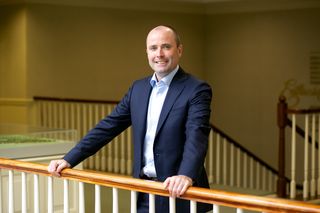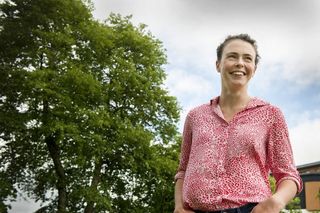Paving the way for a smooth return to more flexible work
Companies need to establish a culture of trust
Stock Image
The nature of work has changed for many companies since the onset of the Covid-19 pandemic, bringing with it a move to remote and flexible working for many employees.
Overall, this appears to have been positive, with many businesses finding that productivity has remained the same or even increased during this period.
A recent survey, conducted by the Whittaker Institute and NUI Galway, found that 95pc of respondents would like to work remotely at least some of the time – and in an increasingly competitive skills marketplace employers understand that they run the risk of losing their best talent if they force everyone back to the office. With this in mind companies are now seeking to set up appropriate means of supporting remote, hybrid and flexible working for the longer-term.
This new landscape of work brings both opportunities and challenges and companies need to consider how they build and implement appropriate processes and capability to ensure that these changes work for their business. These include looking at ways to implement flexible working to suit both the business and employees, utilising office space effectively while many are working remotely and motivating managers and employees while they are engaged in remote work activities. In addition, staff may be anxious about returning to the workplace, so it is also important to consider health and well-being supports.
Companies should be aware that remote working attracts the same rights and responsibilities as office-based work in terms of pay, benefits, health and safety and work time so it is important to have appropriate remote working policies and supports in place. And where businesses are employing staff from other jurisdictions, they need to be clear that the employment rights which govern the terms and conditions of employment are those of the country where the individual is physically working.
But while transitioning to a fully remote or hybrid work model may seem easy as we have all been doing it for 18 months, getting it right for the long-term is actually very complex and requires significant planning and communication with employees.
Firstly, companies really need to consider what’s best for them as a business as well as their employees. What’s right for one company may not be right for another, so a good starting point is to survey managers and staff to understand their needs. Then companies need to review and consider how easy it will be for employees to carry out responsibilities remotely – flexibility is key here as what works for one person or role may not work for another.
Regular two-way communication with employees, via online surveys, focus groups, all-hands meetings, and one-to-ones, is also essential going forward and companies need to establish a culture of trust, with value placed on deliverables rather than on input or time spent online.
Equally, maintaining engagement and motivating staff is incredibly important and managers need to develop new skills to lead, manage and engage employees in remote and hybrid work environments.
Companies should look out for signs of stress and over-work among employees as it is more difficult to spot in a remote environment. Indeed, many employees are reporting that the merging of work and home life is making it difficult to switch off outside work hours and this is exacerbated when the work culture is focused on presenteeism, as employees feel that their time is being monitored.
With this in mind, Enterprise Ireland, in conjunction with Voltedge Management Ltd, has developed Emerging through Covid-19: The Future of Work to help Irish companies to consider and reflect on these and other HR challenges they are likely to face over the coming months.
Its purpose is to help business leaders to understand how the world of work has changed over the past year and consider the impact these changes may have on the expectations and motivations of both current and prospective employees. Our intention is to provide insight into good HR practice and to encourage businesses to think about what approaches or responses may be right for them.
Karen Hernández is Senior Executive – People & Management Pillar at Enterprise Ireland
Join the Irish Independent WhatsApp channel
Stay up to date with all the latest news















